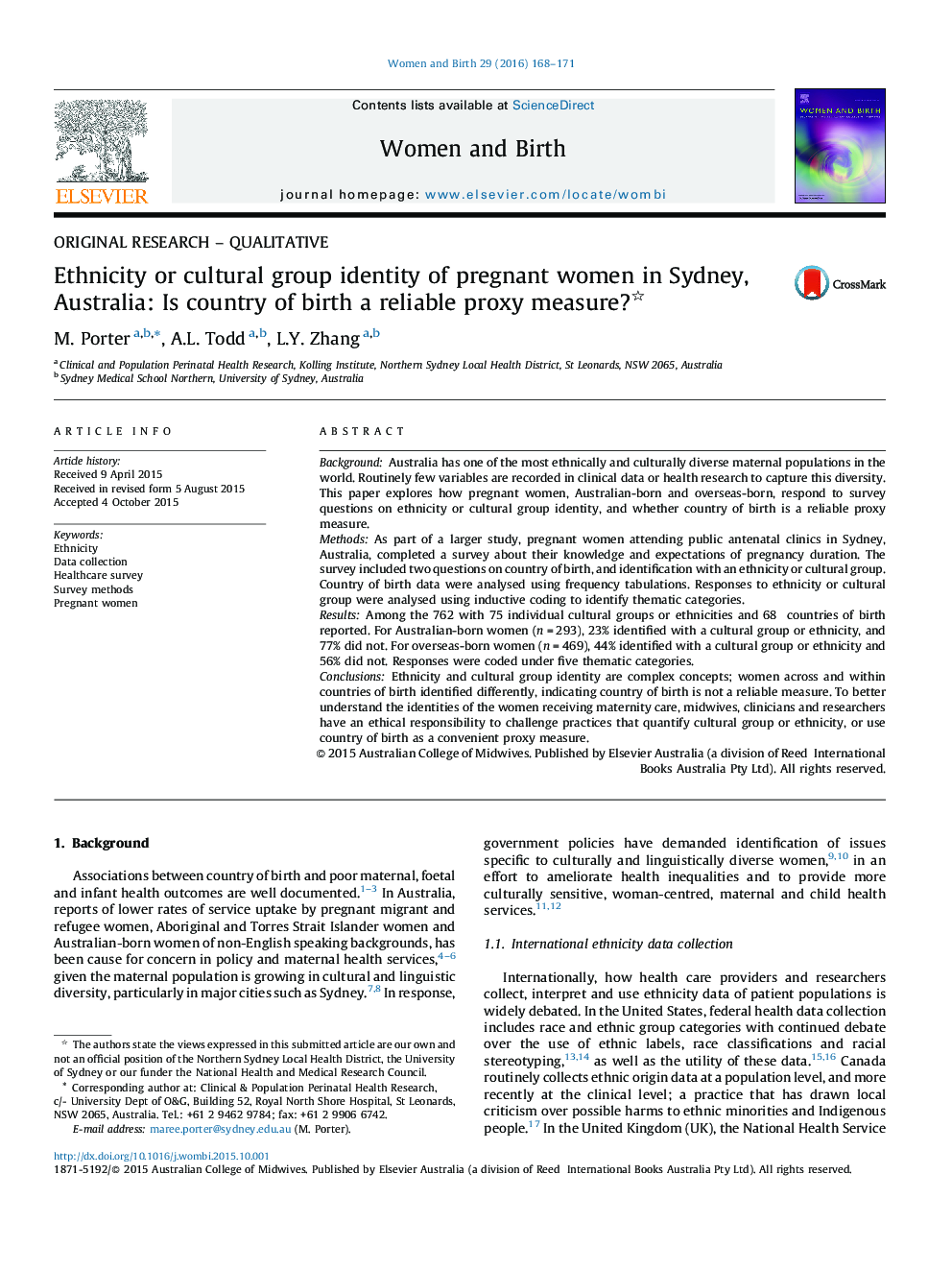| Article ID | Journal | Published Year | Pages | File Type |
|---|---|---|---|---|
| 2635861 | Women and Birth | 2016 | 4 Pages |
BackgroundAustralia has one of the most ethnically and culturally diverse maternal populations in the world. Routinely few variables are recorded in clinical data or health research to capture this diversity. This paper explores how pregnant women, Australian-born and overseas-born, respond to survey questions on ethnicity or cultural group identity, and whether country of birth is a reliable proxy measure.MethodsAs part of a larger study, pregnant women attending public antenatal clinics in Sydney, Australia, completed a survey about their knowledge and expectations of pregnancy duration. The survey included two questions on country of birth, and identification with an ethnicity or cultural group. Country of birth data were analysed using frequency tabulations. Responses to ethnicity or cultural group were analysed using inductive coding to identify thematic categories.ResultsAmong the 762 with 75 individual cultural groups or ethnicities and 68 countries of birth reported. For Australian-born women (n = 293), 23% identified with a cultural group or ethnicity, and 77% did not. For overseas-born women (n = 469), 44% identified with a cultural group or ethnicity and 56% did not. Responses were coded under five thematic categories.ConclusionsEthnicity and cultural group identity are complex concepts; women across and within countries of birth identified differently, indicating country of birth is not a reliable measure. To better understand the identities of the women receiving maternity care, midwives, clinicians and researchers have an ethical responsibility to challenge practices that quantify cultural group or ethnicity, or use country of birth as a convenient proxy measure.
